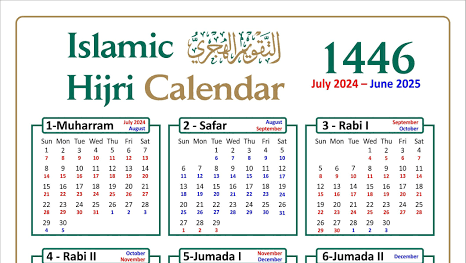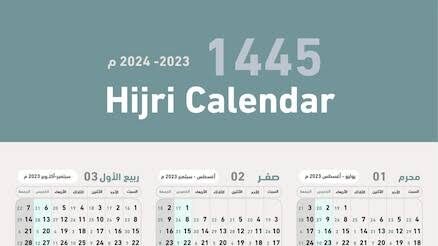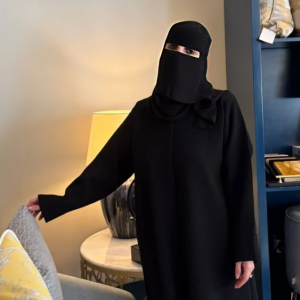Islamic Date Today in UAE: A Guide to the Hijri Calendar
Islamic Date For Muslims around the world, including those in the United Arab Emirates (UAE), the Islamic or Hijri calendar holds immense significance. It is more than just a method of marking days; it is deeply intertwined with religious observances, traditions, and spiritual milestones. The Islamic date plays a central role in guiding key events, including Ramadan, Hajj, and Eid celebrations, making it an integral part of daily life.
Understanding the Islamic date today in the UAE is important not only for residents but also for visitors who want to align with the cultural and religious fabric of the country. Let’s explore how the Hijri calendar functions, its significance, and its application in the UAE.

What Is the Hijri Calendar?
The Islamic or Hijri calendar is a lunar calendar that consists of 12 months, based on the cycles of the moon. Unlike the Gregorian calendar, which follows the solar year, the Hijri calendar is approximately 10 to 12 days shorter, comprising 354 or 355 days.
The calendar begins with the event of Hijra, the migration of Prophet Muhammad (PBUH) and his followers from Mecca to Medina, marking the start of the Islamic era. This historical significance adds spiritual depth to the calendar, connecting it to the very foundation of Islam.

The months of the Islamic calendar include Muharram, Safar, Rabi’ al-Awwal, Rabi’ al-Thani, Jumada al-Awwal, Jumada al-Thani, Rajab, Sha’ban, Ramadan, Shawwal, Dhu al-Qi’dah, and Dhu al-Hijjah. Each month begins with the sighting of the crescent moon, a practice that has been followed for centuries.

The Importance of the Islamic Date in the UAE
In the UAE, the Islamic calendar is used alongside the Gregorian calendar. While the Gregorian calendar governs civil and business affairs, the Islamic calendar is essential for determining religious observances. This dual calendar system reflects the UAE’s commitment to preserving its cultural and religious identity while embracing global practices.
The Islamic date influences key events such as the start of Ramadan, the celebration of Eid al-Fitr, and the observance of Eid al-Adha. It also determines the dates for Hajj, the annual pilgrimage to Mecca, which is one of the Five Pillars of Islam.
On a daily basis, the Islamic date is referenced during prayers, religious gatherings, and even in personal reflection, as many Muslims use it to align their lives with Islamic principles and traditions.
How to Find the Islamic Date Today in the UAE
For those residing in or visiting the UAE, finding the Islamic date today is straightforward. Various tools and platforms provide real-time updates on the current Hijri date.
Digital calendars and mobile applications are among the most convenient options. These platforms not only display the Islamic date alongside the Gregorian date but also include features such as reminders for prayer times and alerts for significant Islamic events.
Many mosques and Islamic centers in the UAE also display the daily Islamic date prominently, ensuring that the community stays informed. Additionally, local television channels and newspapers often include the Islamic date in their daily broadcasts and publications.
Aligning Life with the Lunar Calendar
For Muslims, aligning their lives with the Hijri calendar goes beyond mere tradition. It represents a conscious effort to stay connected to the Islamic faith. Observing the Islamic date allows individuals to prepare for upcoming religious milestones, fostering a sense of spiritual discipline and awareness.
For example, the arrival of the holy month of Ramadan, marked by the sighting of the crescent moon of Sha’ban’s end, is eagerly anticipated by Muslims worldwide. During Ramadan, the daily fast from dawn to sunset is observed, and acts of worship and charity are intensified.
Similarly, the months of Dhu al-Hijjah and Muharram hold special significance. Dhu al-Hijjah is the month of Hajj, while Muharram, the first month of the Islamic calendar, is regarded as sacred and is a time for fasting and reflection.
The Cultural Connection
The Hijri calendar is not just a religious tool; it is a cultural treasure that binds the Muslim community together. In the UAE, the Islamic date today often serves as a conversation starter and a means of connecting with others.
Families, friends, and neighbors frequently discuss upcoming Islamic events and plan their activities around the calendar. Whether it’s preparing for Eid celebrations or organizing communal prayers, the Hijri calendar fosters a sense of togetherness and shared purpose.
How the Islamic Calendar Shapes Daily Life
In the UAE, the rhythm of life is subtly influenced by the Islamic calendar. Religious holidays based on the Hijri calendar are public holidays, allowing families and communities to come together in celebration and worship. The observance of these dates reinforces the nation’s commitment to its Islamic roots while nurturing a sense of unity among its diverse population.
Moreover, businesses and schools often incorporate the Islamic calendar into their planning. This ensures that operations align with major religious observances, creating an environment that respects and supports the spiritual practices of the community.
The Lunar Calendar’s Global Relevance
While the Hijri calendar is predominantly used in Muslim-majority countries like the UAE, its significance extends globally. For Muslims living in non-Muslim countries, following the Islamic date helps them stay connected to their faith and traditions.
The calendar also serves as an educational tool, offering insights into Islamic history and culture. By understanding the events and significance of each month, individuals gain a deeper appreciation of Islam’s rich heritage.
A Practical and Spiritual Guide
Understanding the Islamic date today in the UAE is both practical and spiritual. It helps individuals plan their daily activities, prepare for religious events, and align their lives with Islamic principles. For residents and visitors alike, staying informed about the Hijri calendar fosters a sense of belonging and respect for the emirate’s cultural and religious landscape.
Whether you’re marking the beginning of a sacred month, celebrating Eid, or simply reflecting on the spiritual significance of a particular day, the Islamic calendar is a guide that enriches daily life. It serves as a reminder of faith, unity, and the timeless connection between past, present, and future.
For anyone in the UAE, the Islamic date is more than just a number—it is a symbol of tradition, devotion, and the enduring power of faith.
Do Follow Uae stories for more update












